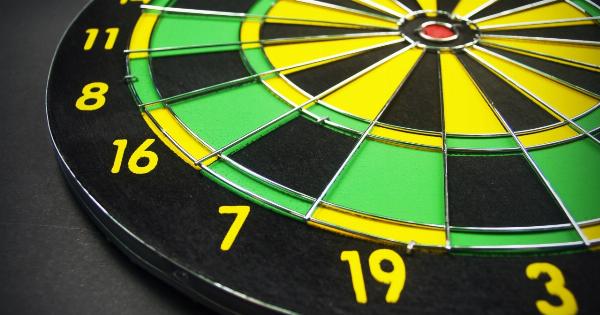Dementia is a condition that affects millions of people worldwide, causing memory loss, cognitive decline, and a decline in overall brain function.
While there is currently no cure for dementia, research has shown that certain activities and therapies can help slow down its progression and improve quality of life for those living with the condition. One such activity that has gained significant attention is playing board games.
Board Games and Dementia
Playing board games can be an enjoyable and effective way to stimulate the brain and promote cognitive function in individuals with dementia.
Board games engage different areas of the brain, including memory, problem-solving, attention, and decision-making. When played regularly, these games can help keep the mind active and potentially slow down the cognitive decline associated with dementia.
Benefits of Board Games for Dementia Patients
1. Cognitive Stimulation: Board games require players to use their memory, logic, and reasoning skills. This constant mental engagement can help improve cognitive function and slow down cognitive decline in individuals with dementia.
2. Social Interaction: Board games often involve multiple players, providing an opportunity for social interaction.
Engaging in social activities can help reduce feelings of isolation and improve overall emotional well-being for individuals with dementia.
3. Emotional Stabilization: Playing board games can be a source of enjoyment and positive emotions for individuals with dementia. These games can help reduce anxiety, stress, and depression commonly associated with the condition.
4. Motor Skills: Many board games require the use of fine motor skills, such as picking up cards or moving game pieces. Regularly engaging in these activities can help maintain and improve motor skills in individuals with dementia.
5. Reminiscence Therapy: Some board games, especially those focused on nostalgia or memories, can be a form of reminiscence therapy.
Reminiscence therapy involves recalling past experiences and can aid in preserving long-term memory in individuals with dementia.
Recommended Board Games for Dementia Patients
1. Chess: Chess is a strategic board game that requires players to plan ahead, problem-solve, and utilize memory skills. Its complex nature makes it a great choice for stimulating the brain and promoting cognitive function.
2. Scrabble: Scrabble is a word-building game that helps improve vocabulary, memory, and language skills. It can be an enjoyable way for individuals with dementia to exercise their minds and engage in friendly competition.
3. Jigsaw Puzzles: While not technically a board game, jigsaw puzzles offer similar benefits. They encourage visual perception, spatial reasoning, and problem-solving skills.
Jigsaw puzzles can be particularly helpful for individuals with dementia who may struggle with other types of games or activities.
4. Bingo: Bingo is a simple game that helps improve attention, concentration, and short-term memory. It can also provide opportunities for social interaction, making it an excellent choice for individuals with dementia.
5. Memory Games: There are various memory games available in the form of board games or card games that can exercise memory skills and enhance cognitive function in individuals with dementia.
These games often involve matching pairs or recalling the location of hidden objects.
Tips for Playing Board Games with Dementia Patients
1. Choose suitable games: Select games that match the individual’s cognitive abilities and interests. Avoid games that may be too complex or frustrating.
2. Create a suitable environment: Play in a quiet and comfortable environment with minimal distractions. Ensure good lighting and comfortable seating arrangements.
3. Be patient and supportive: Understand that individuals with dementia may experience difficulties or slower response times. Be patient, offer support, and adapt the rules as needed to accommodate their abilities.
4. Break it down: If a game seems overwhelming, break it down into smaller steps or focus on specific aspects. This can make it more manageable and enjoyable for individuals with dementia.
5. Modify rules if necessary: Feel free to modify the rules of the game to suit the individual’s needs. Simplify instructions, use visual cues, or allow for extra time to complete turns.
6. Maintain a positive atmosphere: Keep the atmosphere light-hearted, encouraging, and fun. Focus on the enjoyment and social interaction rather than the competition.
Conclusion
Playing board games can be a valuable activity for individuals with dementia. These games stimulate the brain, promote cognitive function, and provide opportunities for social interaction and emotional well-being.
Incorporating board games into a dementia care plan can help improve the quality of life for those living with the condition.





























